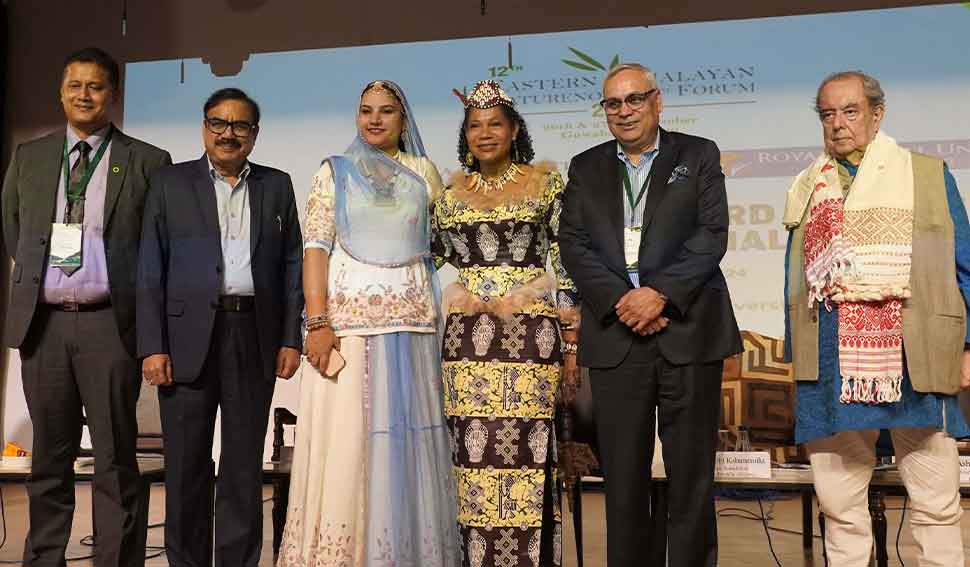12th Eastern Himalayan Naturenomics Forum concludes, focuses on future of Third Pole, Eastern Himalaya

The 12th edition of the Eastern Himalayan Naturenomics™ Forum, hosted by the Balipara Foundation in Guwahati, concluded on Wednesday night bringing together a diverse array of experts, policymakers, corporate leaders, and thought leaders to discuss the urgent challenges facing the Eastern Himalaya and the broader “Third Pole” region. The discussions highlighted the region’s critical role in regulating global climate systems, its glaciers’ importance as watersheds for billions, and the need for sustainable solutions rooted in local knowledge and global cooperation.
The Eastern Himalaya and Third Pole—often referred to as the “water tower” of South and Southeast Asia—are vital for maintaining climate systems and water resources for billions.
Insights from leaders like Kaizad Bharucha (HDFC), Chanakya Chaudhury (Tata Steel), and Praveer Sinha (Tata Power) highlighted the role of businesses in adopting sustainable practices.
Contributions from experts such as Dr. Vibha Dhawan (TERI), Dr. Lobsang Sangay (Harvard Law School), and Spencer Low (Google Asia Pacific) bridged global frameworks with local action.
Traditional Wisdom: Queen Diambi Kabatusuila of the Democratic Republic of Congo stressed the importance of decolonizing approaches to environmental issues and integrating traditional knowledge into policy solutions.
Queen Diambi emphasized the need to redefine engagement and corrective measures, moving beyond Western-centric solutions to those informed by the realities and wisdom of the Global South.
Chanakya Chaudhury called for partnerships between corporations and local communities, emphasizing that mutual interests must be aligned for sustainable development.
Recognizing the expertise of indigenous and local communities in managing their ecosystems, participants stressed that these voices must shape policies and actions.
The forum highlighted the necessity of building a regenerative economy, where human activities not only minimize harm but also actively restore ecological balance.
The forum emphasized the need for integrating natural capital accounting and valuing ecosystems to inform better policymaking and business practices.
Abhejit Agarwal, Head of Sustainability at Axis Bank, stressed the interconnectedness of biodiversity and business, calling for deeper collaboration among stakeholders to reflect environmental costs in financial decision-making.
On elephant conservation, Monica Kishore (DFO, Guwahati Wildlife Division) argued for shifting the narrative to focus on protecting ecosystems holistically rather than merely creating habitats for elephants.
Eklabya Sharma of ATREE emphasized fostering connections beyond government collaboration, encouraging community-to-community, business-to-business, and science-to-science exchanges to drive sustainable solutions.
The Balipara Foundation Awards celebrated the work of 14 “Earth Heroes,” including community leaders, scientists, and conservationists who have contributed to preserving the biocultural heritage of the Eastern Himalayas.
Their work spanned diverse locations, from Loktak Lake in Manipur and Deepor Beel in Assam to Bhutan’s national parks and the Sundarbans.
Praveer Sinha, MD & CEO of Tata Power, highlighted the dire consequences of climate change, with 300 days of extreme weather in India last year. He called for leveraging science to protect biodiversity and ensure the planet’s habitability.
The 13th Eastern Himalayan Naturenomics™ Forum is scheduled for November 4–5, 2025, in Guwahati, promising continued dialogue and action for the region.


Leave a Reply